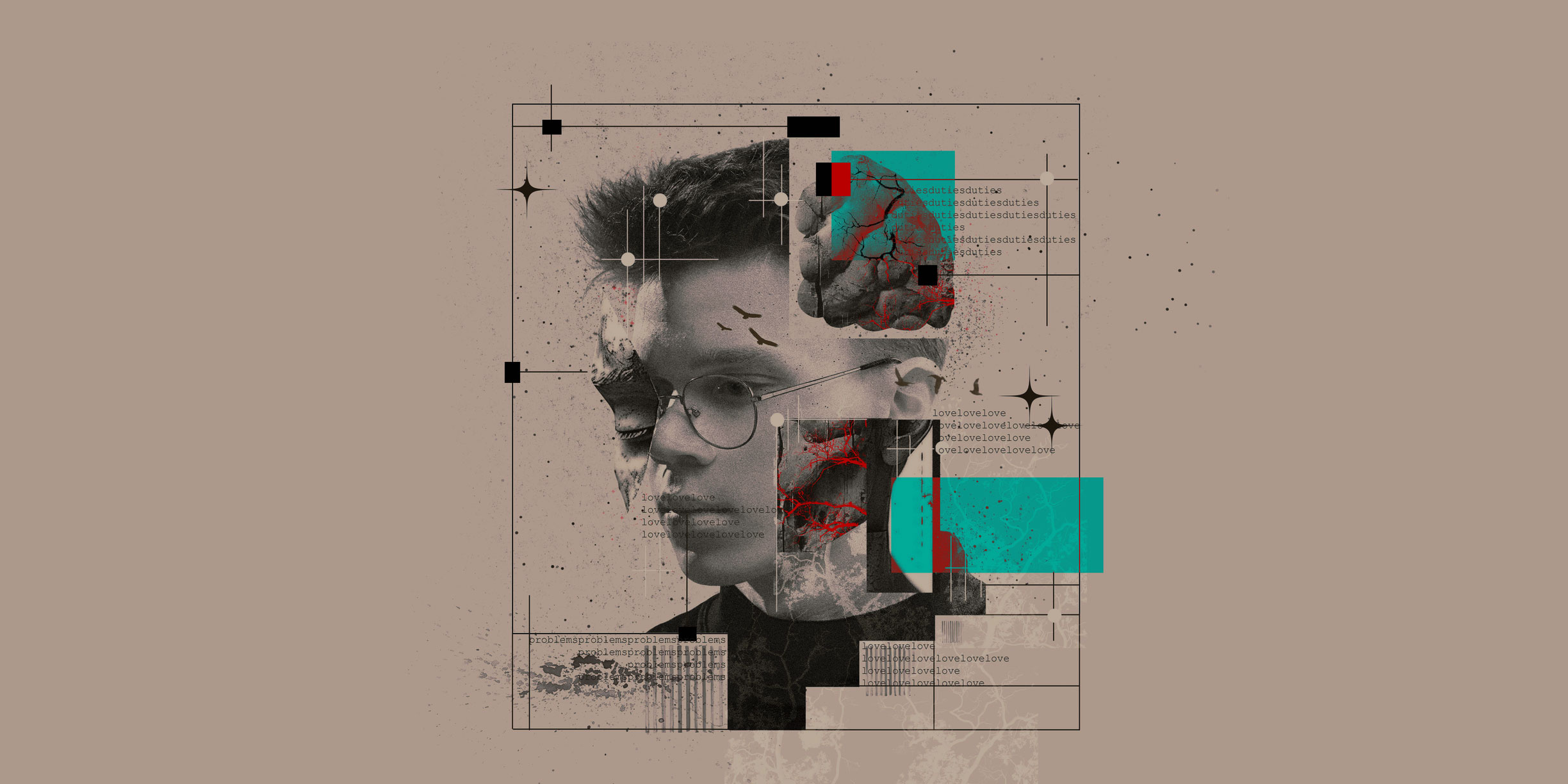Western societies pride themselves on their access to information. Compared to our predecessors, we seem to be the most informed generation to have ever lived on Earth. However, paradoxically, the more data we have access to, the harder it is to determine what is true and what is false.
The fact that the cultural moment we are living in is steeped in psychological vocabulary, which has crept into our conversations with each other and even with ourselves, doesn’t help either. (If you want to explore this phenomenon further, start with Philip Rieff’s The Triumph of the Therapeutic). Of course, it was necessary that, amid the turmoil caused by capitalist culture and its alienating arsenal, we stop denying our deep needs, understand them, and respond to them. But how easily and regrettably our increased attention to emotions has been diverted into contaminating other areas of life where emotions should play a secondary role!
It is no coincidence that the term “post-truth” was designated “word of the year” by Oxford Dictionaries in 2016. When “objective facts are less influential in shaping public opinion than appeals to emotion and personal belief”, it represents an unfortunate and damaging reversal of the natural order of things. The irony is that while emotion is elevated to the status of judge, we are under the impression that reason is actually in control.
The unnatural split
During the Romantic era, emotion again reigned supreme after reason had been enthroned in place of emotion during the Enlightenment. However, as humans, we cannot live by emotion or reason alone. We always need both to move forward. Without one or the other, we are incomplete and miss out on the opportunity to experience life to its fullest potential.
Nevertheless, there are contexts in which it is desirable for either emotion or reason to prevail. We could not imagine a wedding where nobody felt the thrill of something greater than life, which brings two strangers together and unites them. But the ceremony would be disrupted if the caterers were moved to tears by the bride and groom’s love story and could not take their eyes off them. Similarly, we would not want a neurosurgeon removing a brain tumour to be overwhelmed with sadness at having to operate on a child’s brain. However, if the child’s mother sat impassive throughout the operation, perhaps not praying at all, we would immediately perceive the unnaturalness of her reaction.
However, there are times when it is more difficult to determine whether emotion or reason should prevail, especially when we do not expect a choice between the two to be necessary, in certain contexts. Take the internet, for example.
With our guard down
No one comes home from work tired and goes online with the intention of conducting a trial and police investigation into the information they encounter. Usually, we scroll with the desire to escape everyday life and distract ourselves from our problems by looking at beautiful, funny, or uplifting things.
Most of the time, we are unaware of how the fragments of data we see affect us: we don’t realise that when we encounter information that confirms our beliefs, it gives us pleasure, or that when someone contradicts us, we perceive it as a threat. However, it is precisely these mechanisms that are used to design algorithms that create an information ecosystem designed to provide us with content that aligns with our existing beliefs, encouraging us to spend more time on screen. We do not realise that our attention has become the world’s most valuable currency.
Oriented towards comfort
To paraphrase essayist Alan Jacobs, “the internet is the friend of information, but the enemy of wisdom”. Why? Disparate information needs to be collected, sorted, catalogued, and evaluated, and we are often unwilling or unable to make the effort required for these activities. This is not out of laziness, but because of the fatigue caused by the overstimulation resulting from the abundance of information, and as a result of the human brain’s predisposition to favour cognitive comfort over objective truth, especially when that truth contradicts our beliefs or causes us anxiety.
But what if we want to find out the truth, rather than just hearing an echo of our prejudices? “Fasten your seatbelts,” as the heroes in American movies say, because what follows is a real adventure…
Coherence is a biological need. Our brains are built to seek predictability and meaning, and they will look for these things absolutely everywhere, even if it means inventing them.
“If you look at any walls spotted with various stains or with a mixture of different kinds of stones, if you are about to invent some scene you will be able to see in it a resemblance to various different landscapes adorned with mountains, rivers, rocks, trees, plains, wide valleys, and various groups of hills. You will also be able to see diverse combats and figures in quick movement, and strange expressions of faces, and outlandish costumes, and an infinite number of things which you can then reduce into separate and well conceived forms.” — Leonardo da Vinci
This is why critical thinking can seem unnatural: it requires us to sacrifice comfort for stress, tolerate cognitive dissonance and embrace the unknown, despite our instincts telling us to seek comfort, clarity, and knowledge. But we have to work for all of these things. This work is largely psychological and involves fearlessly confronting cognitive doubt. Intellectual maturity means not panicking in the absence of certainties, but rather accepting uncertainty as a normal stage of learning.
We have a wealth of resources on developing critical thinking as a tool for discovering the truth. However, even the sharpest critical thinking is ineffective if we lack culture. This is because critical thinking can only detect falsehoods if it is grounded in verified truth.
The moral oxygen of thinking
Whether we are talking about a political, public health, or religious message, we need to be aware that it is based on a certain ideology—that is, a set of values, beliefs, and assumptions about how the world should be. And most of the time, this is not explicit.
Ideology is a set of values, beliefs, and assumptions about how the world should be.
For example, when reading an article advocating reform of the state administration to make it more efficient and less costly, the explicit message is that “we need state reform to reduce bureaucracy and eliminate unnecessary public sector jobs”. However, the ideology behind this message may have its roots in neoliberalism, which assumes that economic efficiency is the supreme value and that the state must function according to market logic. It may also have its roots in individualism, which emphasises individual responsibility rather than social solidarity, and perhaps in moderate anti-statism, in which the state is seen as cumbersome and inefficient and as an obstacle rather than a protector of citizens.
However, the article will not present reform as an ideological choice, but as a technical necessity. In other words, the fundamental unspoken question that the article implicitly answers is: “Who has the right to decide how society is run?”
During the height of the COVID-19 pandemic, I often came across posts saying: “Wear a mask! Protect others and show that you care about your community!” The overt message was that masks prevent the spread of the virus and protect vulnerable people. The implicit ideological premises included communitarianism (or solidarism), which emphasises the collective good over absolute individual freedom, and trust in scientific authority—the assumption that medical institutions and experts are legitimate sources of truth. There was also perhaps an element of trust in the benevolence of the state in its role of protecting public health by imposing restrictions. The fundamental question answered by posts of this type was: “How much should the individual submit to collective authority?“
While the message about reforming the state administration is not particularly controversial, the message about masks was vehemently contested by libertarians (“the state has no right to tell me what to do with my body”) and even anti-statists (so-called “sovereigntists”). Thus, behind a simple health recommendation, there was an ideological tension between collectivism and individualism, among other things.
One might think that when it comes to religious messages, things would be easier. After all, moralising messages are intended to affirm and proclaim a vision of truth, responsibility, and freedom. However, religious communication, with its ramifications that penetrate all spheres of life, is even more challenging to break down and verify. The endeavour is worth the effort, though.
Copy-paste communication
Although Romania has its own cultural context, ideological tensions imported from the United States are gradually insinuating themselves into online communication, sermons, and discussions among believers, often in the form of words borrowed from English.
Some people involuntarily align themselves with progressive discourse, while others align themselves with militant conservatism without realising that both camps can divert attention away from the central message of the Gospel. This error stems from the American two-party system, which divides reality into two opposing camps, each convinced that they hold the truth. (This confusion persists even though the “left” and “right” in Romania uphold values that are almost the opposite of those of their American counterparts.)
In the US, the Democratic and Republican parties have, over decades, constructed two worldviews that seem to cover the entire moral spectrum.
Democrats emphasise social protection, combatting discrimination, and collective responsibility. They believe that the government should intervene to reduce inequalities. In terms of personal morality, they promote freedom of choice to the point of radical individualism, as seen in debates on abortion and the redefinition of the family.
Republicans, on the other hand, believe that the state should stay out of the economy but strictly monitor public morality. They defend traditional values, yet view any social intervention as an attack on individual freedom. This conservative individualism leads them to believe that poverty is the fault of the poor rather than a failure of the system.
| Democrats | Republicans | |
| General outlook | Emphasis on social protection, combating discrimination, and collective responsibility. | Minimal state involvement in the economy, but a strong role in overseeing public morality. |
| Role of the state | The government must be actively involved in reducing inequalities. | The state should intervene as little as possible in the economy, and social intervention is viewed with suspicion. |
| Attitude towards morality | Freedom of choice is promoted in moral issues to the point of radical individualism (e.g. abortion and the redefinition of the family) | Traditional values and public morality are defended, with moral relativism being opposed. |
| Attitude towards freedom | Individual freedom is associated with personal autonomy and the right to choose. | Freedom is seen as the absence of state constraints and the protection of traditions. |
| Attitude towards inequality and poverty | Inequalities are perceived as systemic problems requiring public intervention. | Poverty is often seen as the result of individual failure rather than systemic failure. |
| Individualism | Liberal individualism, which is oriented towards freedom of choice. | Conservative individualism, which is associated with personal responsibility. |
These differences stem from a common problem: both ideologies take a half-truth and make it absolute. As the American pastor and theologian Timothy Keller observed, neither political party has an ideology comprehensive enough to reflect the ethical balance of the Christian faith. He said that the two-party system does not serve Christianity well because it forces Christians to prioritise one aspect of their faith over another: either social or personal ethics. Keller emphasised that the Christian’s identity should be anchored in Christ, not in party ideology. It is our faith that should shape our political beliefs, not the other way around. Politics has no right to define who we are because, if we allow ideology to become the lens through which we interpret the world, we risk turning it into an idol.
“Neither political party is driven by the breadth, balance, or basis of biblical ethical concerns.” Timothy Keller—Reflections on Faith and Politics
In the second part of this article, we will explore the subject in more depth, examining how ideologies cloak themselves in religious garb.



















